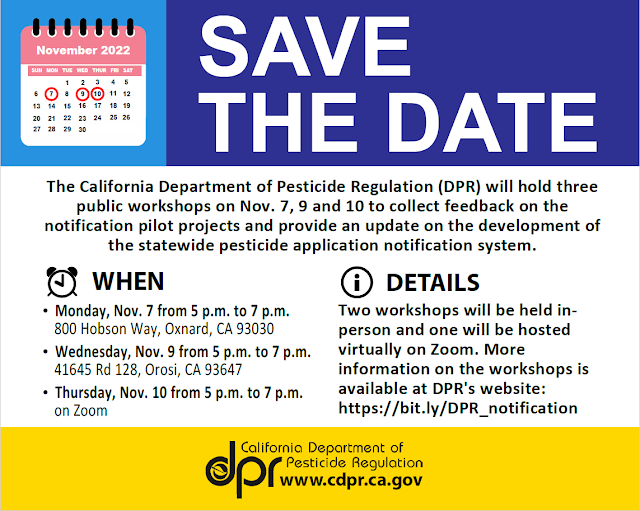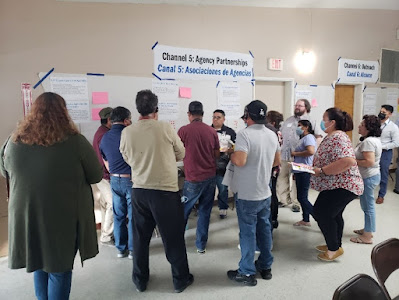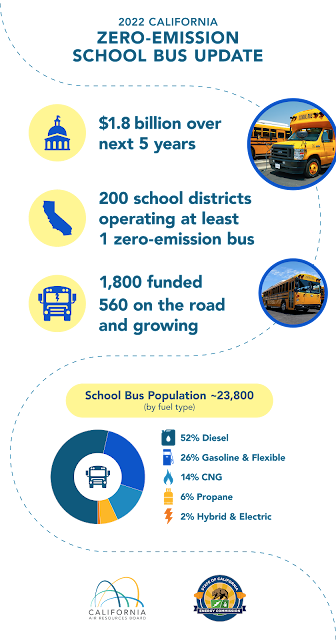El DPR Anuncia Talleres Públicos Sobre el Desarrollo del Sistema de Notificación de la Aplicación de Pesticidas en Todo el Estado

Contacto: Leia Bailey, Directora de Comunicaciones (916) 445-3974 | Leia.Bailey@cdpr.ca.gov SACRAMENTO - El Departamento de Reglamentación de Pesticidas (DPR, por sus siglas en inglés) de California llevará a cabo tres talleres públicos los días 7, 9 y 10 de noviembre para recopilar comentarios y brindar una actualización sobre el desarrollo del sistema de notificación de la aplicación de pesticidas en todo el Estado. Los talleres están diseñados para recopilar comentarios del público sobre los proyectos piloto de notificación en los condados de Riverside, Santa Cruz , Stanislaus y Ventura y el sistema de notificación en todo el Estado. El personal del DPR responderá las preguntas y compartirá los próximos planificados pasos con respecto al sistema de notificación Estatal. Los comentarios recibidos durante los talleres informarán el desarrollo continuo del sistema Estatal. El Centro para el Cambio Regional de la Universidad de Davis facilitará los tres talleres. Cada taller s



